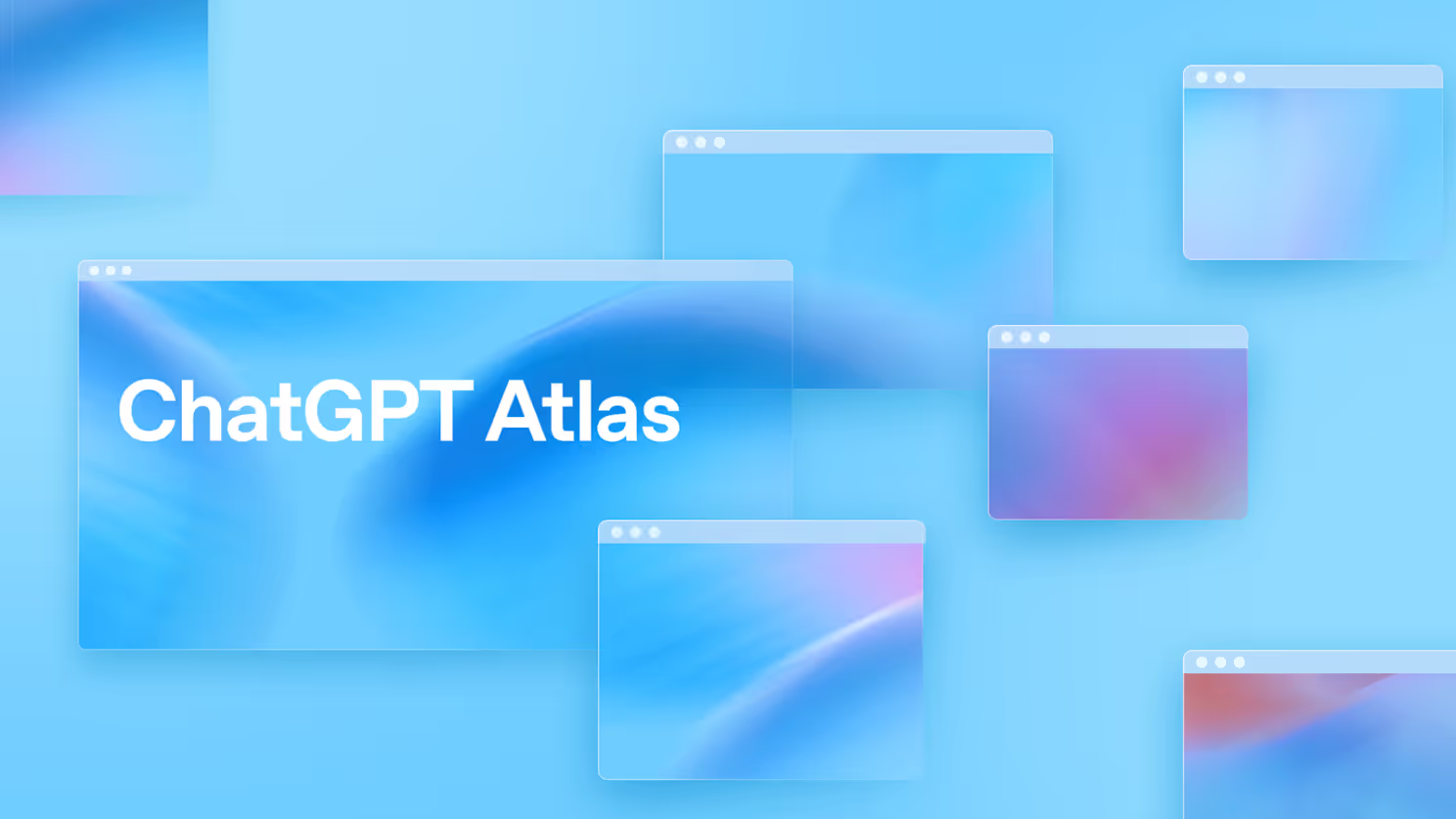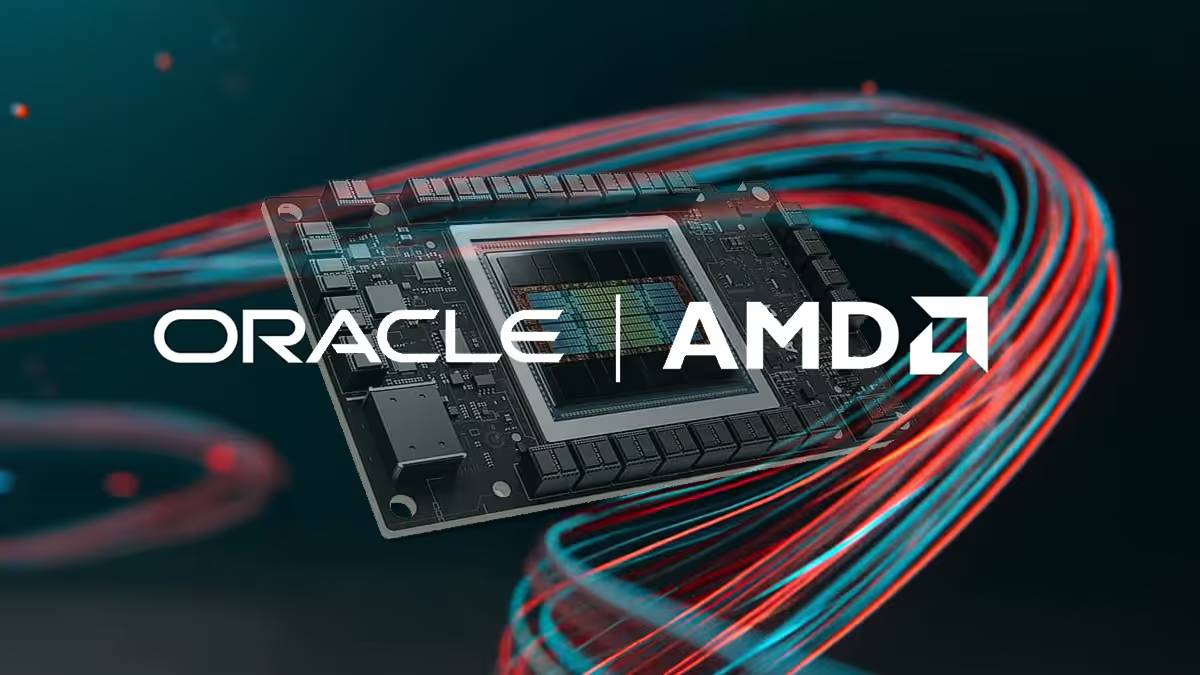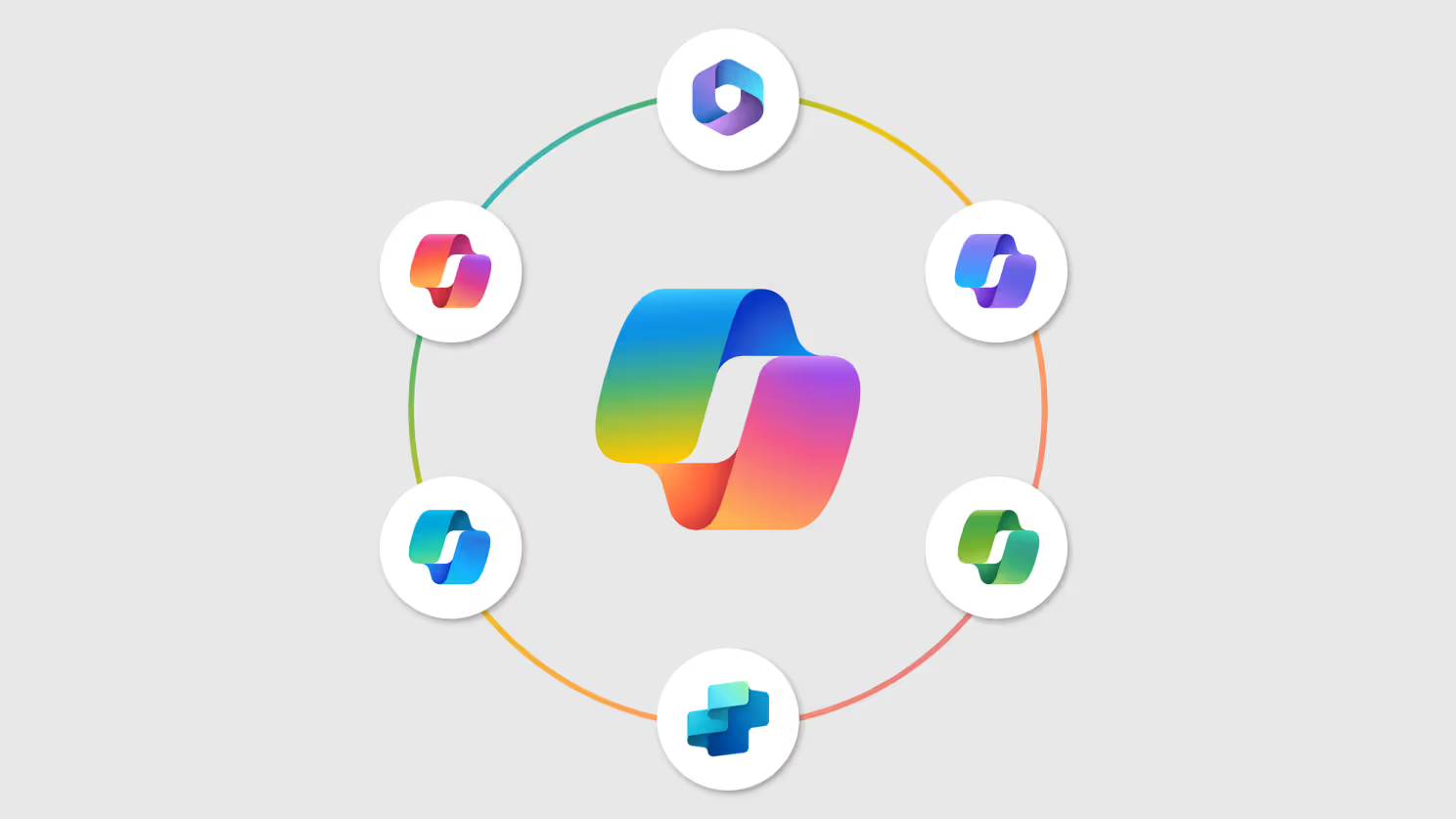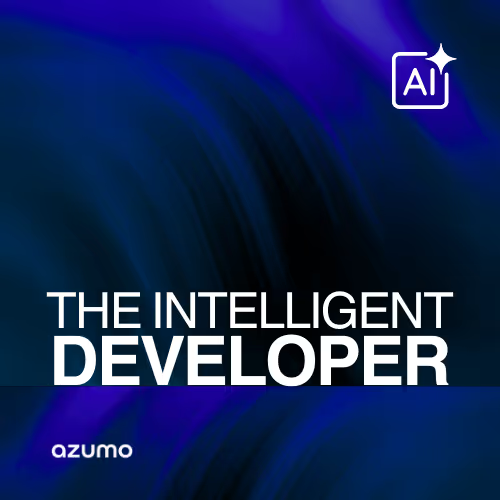AI Intelligence Briefing - October 23, 2025
Executive Summary
The AI landscape transforms dramatically in late October 2025 as OpenAI launches ChatGPT Atlas—an AI-powered browser that directly challenges Google Chrome's dominance and sent Alphabet shares tumbling 2%. Meanwhile, Anthropic secures its largest enterprise deployment ever, bringing Claude to 470,000 Deloitte employees across 150 countries, while AMD and Oracle partnerships reshape the AI infrastructure landscape with alternatives to NVIDIA's dominance.
The week also brings critical regulatory tensions as White House AI advisor David Sacks pushes for a federal moratorium on state AI rules, and enterprise adoption accelerates despite persistent ROI challenges facing 80% of organizations. These developments signal a pivotal moment where AI competition intensifies across browsers, infrastructure, and enterprise deployment while regulatory frameworks remain fragmented.
Top AI Stories This Week
1. OpenAI Launches ChatGPT Atlas: AI-Powered Browser Challenges Google Chrome

OpenAI announced ChatGPT Atlas on October 21, 2025—an AI-powered web browser built around its flagship chatbot, marking a direct challenge to Google Chrome's browser dominance and triggering a 2% drop in Alphabet shares.
: Built on Chromium, the open-source engine powering Google Chrome, ensuring compatibility with existing web standards
: Users can open a ChatGPT panel in any window to summarize content, compare products, or analyze data from any website
: Chat directly with search results, similar to Perplexity or Google's AI Mode
: Paid users can activate agent mode where ChatGPT interacts with websites autonomously—researching and shopping for trips, completing forms, or executing multi-step tasks from start to finish
: ChatGPT logs websites visited and user actions, using this history to personalize responses and improve contextual understanding
: macOS first
: Windows, iOS, and Android support coming soon
: Available to all free users at launch
: Exclusive to paid ChatGPT subscribers
Alphabet shares closed down 2% following OpenAI's announcement, reflecting investor concerns about competitive threats to Google's browser and search dominance. The launch intensifies the AI browser wars, with Google's Chrome commanding approximately 65% of global browser market share.
OpenAI's entry into the browser market represents a strategic expansion beyond conversational AI into the foundational layer of internet access. By embedding ChatGPT directly into browsing, OpenAI positions itself to capture user behavior data across the entire web experience—not just during explicit ChatGPT interactions.
The agent mode capability is particularly transformative: rather than users navigating websites manually, Atlas can execute complete workflows autonomously. This shifts the browser from a passive viewing tool to an active agent that completes tasks on users' behalf, potentially disrupting e-commerce, travel booking, research, and information gathering workflows.
For enterprises, Atlas introduces both opportunities and governance challenges. The ability to automate web-based research and data collection could accelerate business intelligence workflows, but the browser's memory feature raises data privacy and security concerns. Organizations must establish policies governing which employees can use Atlas for work-related tasks and what data can be accessed through its agent mode.
2. Anthropic Lands Largest Enterprise Deployment: Claude for 470,000 Deloitte Employees

Anthropic secured its largest enterprise deployment to date, partnering with Deloitte to roll out Claude to more than 470,000 employees across 150 countries—representing a landmark validation of Claude's enterprise readiness and competitive positioning against OpenAI and Google.
: Claude available to 470,000+ Deloitte professionals worldwide across 150 countries
: Co-created certification program training and certifying 15,000 Deloitte professionals on Claude implementation and optimization
: Dedicated Claude Center of Excellence staffed with specialists developing implementation frameworks, best practices, and ongoing technical support
: Different Claude configurations tailored for specific roles—accountants, software developers, consultants, auditors—rolling out over coming months
: Development of compliance-focused AI solutions for regulated industries including financial services, healthcare, life sciences, and public sector
Paul Smith, Chief Commercial Officer of Anthropic, stated: "Deloitte chose Claude because they need trusted AI that can help their employees and clients across industries and on a global scale—from coding and software development to customer engagement and industry-specific advisory. When the world's leading organizations need to tackle complex, critical work, they choose Anthropic because Claude is built for the compliance and control that enterprises demand."
The Deloitte-Anthropic partnership validates several critical trends in enterprise AI adoption:
First, compliance and governance capabilities now differentiate enterprise AI platforms. Deloitte serves highly regulated industries where AI outputs must meet strict accuracy, auditability, and explainability standards. Claude's selection suggests that Anthropic's constitutional AI approach—designed for safety and alignment—addresses these enterprise requirements more effectively than competitors.
Second, the 470,000-employee scale demonstrates that enterprises are moving beyond pilot deployments to organization-wide AI integration. This mass deployment will generate real-world usage data revealing which AI capabilities actually drive business value versus which remain theoretical benefits.
Third, the certification of 15,000 professionals signals that successful enterprise AI requires specialized expertise. Organizations cannot simply purchase AI platforms and expect immediate productivity gains—they must invest in training, implementation frameworks, and dedicated centers of excellence to capture value.
For enterprises evaluating AI platforms, the Deloitte partnership provides a reference model: comprehensive employee training, role-specific customization, and dedicated support infrastructure. Organizations deploying AI without these foundational elements risk low adoption rates and failed ROI.
The focus on regulated industries is strategically significant. Financial services, healthcare, and public sector organizations face the highest AI compliance burdens. If Anthropic successfully demonstrates Claude's effectiveness in these environments, it establishes a defensible competitive advantage in the most demanding enterprise segments.
3. AMD and Oracle Partnership Accelerates NVIDIA Alternative: 50,000 Instinct GPUs Deployed

Oracle Cloud announced plans to deploy 50,000 AMD Instinct AI accelerators, marking a significant milestone in efforts to diversify AI infrastructure beyond NVIDIA's near-monopoly position, while OpenAI's 6-gigawatt AMD partnership signals broader industry acceptance of alternative GPU architectures.
: 50,000 AMD Instinct GPUs across Oracle Cloud Infrastructure
: 6-gigawatt AMD deployment starting 2026, potentially representing 160 million AMD shares (approximately 10% of the company)
: AMD Instinct MI450 rollout beginning late 2026
: Deployments extending through 2028
AMD's partnerships with Oracle and OpenAI come amid growing concerns about NVIDIA's dominance in AI accelerators, which commands approximately 80%+ market share. Wall Street analysts are increasingly bullish on AMD's positioning as enterprises seek alternatives to mitigate vendor lock-in risks and supply constraints.
The AMD-Oracle-OpenAI ecosystem represents the first credible challenge to NVIDIA's AI infrastructure dominance. While NVIDIA has maintained overwhelming market share since the deep learning revolution began, these partnerships demonstrate that alternative GPU architectures are reaching production-grade maturity.
For enterprises, this development creates three strategic opportunities:
First, multi-vendor GPU strategies become viable. Organizations can now design AI architectures that abstract workload management across NVIDIA and AMD hardware, reducing vendor lock-in and enabling competitive pricing negotiations. This requires software abstraction layers—ONNX, TensorRT, vendor-agnostic orchestration platforms—but the infrastructure diversity now justifies this investment.
Second, the late 2026 delivery timeline for AMD Instinct MI450 provides a clear planning horizon. Enterprises architecting major AI deployments for 2027-2028 can factor in AMD availability, potentially reducing costs by 20-30% compared to NVIDIA-exclusive infrastructure.
Third, OpenAI's willingness to potentially acquire 10% of AMD signals confidence in AMD's long-term competitive positioning. When the world's leading AI company commits this scale of financial and technical resources to an alternative GPU provider, it validates the technology's readiness for frontier AI workloads.
The 50,000 GPU Oracle deployment is particularly significant because Oracle Cloud Infrastructure directly competes with AWS, Azure, and Google Cloud. If OCI successfully delivers competitive AI performance using AMD accelerators, it undermines the perception that NVIDIA GPUs are essential for production AI workloads.
4. Microsoft Copilot Studio 2025 Wave 2: No-Code Custom AI Agent Platform

Microsoft unveiled Copilot Studio 2025 Wave 2, a no-code platform enabling businesses to create custom AI agents without programming expertise, featuring multi-agent orchestration fully integrated with Microsoft 365 and Azure infrastructure.
: Visual interface for creating custom AI agents without coding requirements
: Coordinate multiple specialized agents to complete complex workflows
: Deep integration with Word, Excel, PowerPoint, Teams, Outlook, and SharePoint
: Built on Azure AI services with enterprise security and compliance
: Pre-built agent templates for common business functions—customer service, data analysis, document processing, workflow automation
Copilot Studio's no-code approach democratizes AI agent development, enabling business users to create custom agents without IT department involvement. This addresses a critical enterprise adoption barrier: months-long IT backlogs that delay AI implementations.
However, democratization creates governance challenges. When business units deploy agents with inappropriate data access permissions or inadequate quality controls, organizations face compliance violations and operational risks. Enterprises must establish governance frameworks defining which employees can create agents, what data those agents can access, and what approval workflows apply before production deployment.
The multi-agent orchestration capability signals Microsoft's architectural vision: rather than single-purpose AI assistants, enterprises will deploy orchestrated agent systems where specialized agents handle different business functions. This validates Gartner's prediction that multi-agent architectures will dominate by 2026.
For enterprises, Copilot Studio provides a low-risk entry point for AI agent experimentation. Organizations can start with pre-built templates, customize them for specific workflows, and measure business impact before committing to larger-scale deployments. This reduces the technical barriers that have prevented many mid-market companies from adopting AI.
5. Federal AI Regulation Tensions: White House Pushes State Rule Moratorium

The White House Office of Science and Technology Policy (OSTP) launched a Request for Information on regulatory reform for artificial intelligence, with comments due October 27, 2025, while White House AI and crypto advisor David Sacks advocates for a moratorium on state AI rules, arguing that fragmented state regulation harms AI startups and that a single federal standard is necessary.
: Request for Information identifying Federal statutes, regulations, and processes that hinder AI development, comments due October 27, 2025
: White House directive from July 23, 2025, launching regulatory reform initiatives
: Push for single federal AI regulatory framework preempting state rules
: Signed October 13, amending California AI Transparency Act compliance dates and adding provisions for large online platforms
: 38 states have enacted approximately 100 AI-related measures in 2025
David Sacks argues that a "frenzy" of state AI regulation could harm AI startups by creating compliance burdens across 50 different regulatory frameworks, advocating for federal preemption similar to telecommunications and aviation regulation.
The federal-state regulatory tension creates significant uncertainty for enterprises deploying AI systems. Organizations operating across multiple states face conflicting compliance requirements, with California, New York, Texas, and other states enacting different AI transparency, algorithmic accountability, and bias audit requirements.
For enterprises, this regulatory fragmentation requires flexible AI architectures that can adapt to varying state requirements. Organizations should design AI systems with configurable governance controls—explainability levels, bias monitoring, human oversight requirements—that can be adjusted by jurisdiction.
The October 27 OSTP comment deadline presents an opportunity for enterprises to influence federal AI policy. Organizations should submit comments identifying specific regulatory barriers hindering their AI deployments, potentially shaping the federal framework that may preempt state rules.
If federal preemption occurs, enterprises could benefit from regulatory simplification. A single federal standard would reduce compliance costs and enable consistent AI deployment strategies across states. However, preemption may also result in weaker protections if the federal framework adopts less stringent requirements than leading states like California.
The tension between innovation and regulation persists: Sacks argues that excessive regulation will harm US competitiveness against China and other nations with less restrictive AI policies, while consumer advocates argue that without strong regulation, AI systems will perpetuate bias, invade privacy, and cause societal harm.
Quick Bytes

: Starting October 2025, Microsoft began automatically installing the Microsoft 365 Copilot app on Windows devices with Microsoft 365 desktop client apps, with no opt-out option for personal users, accelerating Copilot's reach across enterprise and consumer markets. [PC Gamer, October 2025]
: OpenAI's GPT-5 model demonstrates superior reasoning capabilities, scoring 94.6% on the AIME 2025 (American Invitational Mathematics Examination) benchmark while processing text, images, audio, and video seamlessly in a unified multimodal system. [Industry Reports, October 2025]
: Purdue University researchers introduced RAPTOR, an AI-powered semiconductor defect-detection system combining high-resolution X-ray imaging and machine learning that achieves 97.6% accuracy spotting microscopic faults inside chips. [October 2025]
: 70%+ of enterprises have integrated AI into at least one business function, with 31% reaching full production—double 2024 rates. However, over 80% report no tangible EBIT impact, and only one in four initiatives deliver expected ROI. [Multiple Industry Reports, October 2025]
Industry Impact Analysis
This week's developments reveal four transformative shifts reshaping enterprise AI strategy:
OpenAI's ChatGPT Atlas launch signals that browsers are becoming AI-native platforms rather than neutral web access tools. By embedding conversational AI and autonomous agents directly into browsing, Atlas transforms how users discover information, make decisions, and complete tasks online.
For enterprises, this has profound implications for customer acquisition and engagement. If significant portions of web traffic flow through AI-mediated browsers that summarize, filter, and synthesize information before users reach websites, traditional SEO and web design strategies become less effective. Organizations must optimize content for AI consumption and summarization, not just human reading.
The agent mode capability introduces new automation opportunities: employees could delegate research, competitive intelligence, supplier discovery, and data collection to browser-based agents that work autonomously. However, enterprises must establish governance controls defining what tasks agents can execute, what data they can access, and what approvals are required. With Comet from Perplexity and now Atlas, it is only a matter of time before Google will need to implement more AI capabilities into Chrome and potentially disrupt their more than 20 year dominance on internet search.
Anthropic's 470,000-employee Deloitte deployment and Microsoft's automatic Copilot installation demonstrate that enterprises are moving beyond small-scale pilots to organization-wide AI integration. This mass deployment phase will generate real-world data revealing which AI capabilities deliver measurable business value versus which remain theoretical benefits.
The critical success factors emerging from large-scale deployments are:
Comprehensive training programs (Deloitte's 15,000 certified professionals)
Role-specific customization (tailored Claude personas for different job functions)
Dedicated support infrastructure (Centers of Excellence)
Integration with existing workflows (Microsoft 365, enterprise applications)
Organizations deploying AI without these foundational elements risk low adoption rates and failed ROI. The 80% of enterprises reporting no tangible EBIT impact likely lack these implementation fundamentals.
The AMD-Oracle-OpenAI ecosystem validates that enterprises can now design multi-vendor GPU strategies rather than relying exclusively on NVIDIA. With AMD Instinct MI450 deliveries beginning late 2026, organizations architecting major AI deployments for 2027-2028 have credible alternatives.
This infrastructure diversification creates opportunities for cost optimization and vendor lock-in mitigation. However, it requires software abstraction layers that maintain consistent application behavior across different hardware platforms. Enterprises should evaluate frameworks like ONNX and vendor-agnostic orchestration platforms to prepare for heterogeneous infrastructure.
The late 2026 delivery timeline provides a clear planning horizon. Organizations making infrastructure commitments today should negotiate flexibility to incorporate AMD alternatives when they become available, potentially reducing costs by 20-30%.
The federal-state regulatory tension creates significant uncertainty for multi-state AI deployments. With 38 states enacting approximately 100 AI-related measures in 2025, enterprises face conflicting compliance requirements across jurisdictions.
Organizations should design AI systems with configurable governance controls—explainability levels, bias monitoring, human oversight requirements—that can be adjusted by jurisdiction. This flexible architecture enables consistent AI capabilities while meeting varying state requirements.
The October 27 OSTP comment deadline presents an opportunity to influence federal AI policy. Enterprises should submit comments identifying specific regulatory barriers, potentially shaping the federal framework that may preempt state rules and simplify compliance.
What to Watch
: Monitor Atlas browser market share over Q4 2025 and Q1 2026. If Atlas captures 5-10% of browser traffic within six months, it validates AI-native browsers as a competitive threat to Google's search and advertising ecosystem.
: Watch for case studies and productivity metrics from Deloitte's 470,000-employee Claude deployment over the next 6-12 months. Quantified business value would validate enterprise AI investments and drive broader adoption.
: The late 2026 first delivery of AMD's AI accelerators is critical. Successful on-time deployment would accelerate multi-vendor GPU strategies; significant delays would extend NVIDIA's dominance.
: The OSTP Request for Information (comments due October 27) may signal whether federal AI regulation will preempt state rules. A strong federal preemption framework would simplify compliance; weak or delayed federal action would perpetuate state-level fragmentation.
: Microsoft's automatic Copilot installation on Windows devices will dramatically expand AI assistant reach. Monitor enterprise adoption rates and usage patterns to assess whether automatic installation drives sustained engagement or faces resistance.
: Reports indicate fraying partnership dynamics as OpenAI diversifies infrastructure beyond Microsoft Azure. Watch for further developments in Q4 2025 that may reshape the enterprise AI platform landscape.
: With autonomous agents deploying across Microsoft 365, Deloitte, and other enterprises, monitor for high-profile incidents involving unauthorized agent actions, data access violations, or compliance breaches that will drive governance framework development.
About Azumo
As AI competition intensifies across browsers, infrastructure, and enterprise platforms, organizations need partners with deep implementation expertise to navigate complex technology choices, governance requirements, and ROI optimization.
specializes in:
: Implement and customize workplace AI platforms ( Anthropic Claude, Microsoft 365 Copilot) with enterprise security, compliance, and data governance
: Design heterogeneous AI architectures optimizing performance, cost, and compliance across NVIDIA, AMD, and cloud platforms
: Build production-ready AI agents with proper governance, audit trails, and human-in-the-loop controls
: Design AI implementations with clear success metrics, measurement frameworks, and business value tracking to avoid the 80% failure rate
Our team has guided enterprises through successful AI transformations across financial services, healthcare, manufacturing, and professional services, delivering measurable productivity gains while managing compliance and security risks.
Ready to move your AI initiatives from pilots to organization-wide deployment with measurable business impact? Contact Azumo to discuss how we can help you leverage ChatGPT Atlas, Claude, or other AI platforms while navigating the complex landscape of infrastructure providers, governance requirements, and ROI optimization.
Sources
- TechCrunch, October 21, 2025
- CNN Business, October 22, 2025
- CNBC, October 21, 2025
- Axios, October 21, 2025
- Anthropic, October 6, 2025
- CNBC, October 6, 2025
- Allwork.Space, October 2025
- PYMNTS, October 2025
- CNBC, October 14, 2025
- The Motley Fool, October 17, 2025
- Federal Register, September 26, 2025
- JDSupra, October 2025
- SparkCo, October 2025
- OpenAI, October 2025
- Medium, October 2025
